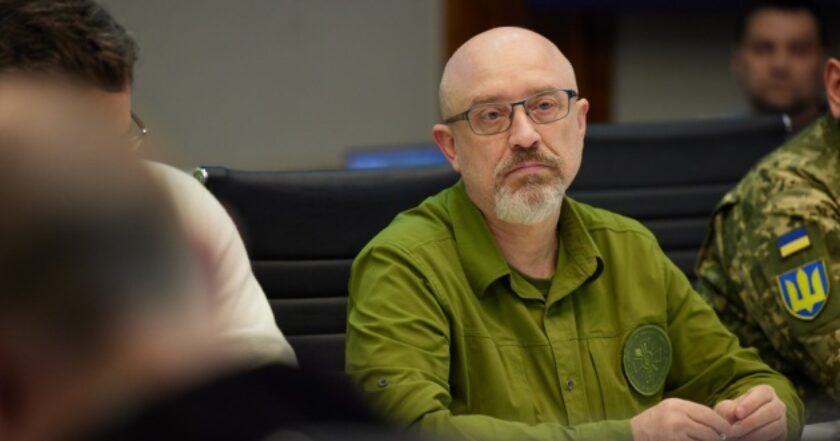Rainy weather slows down Ukraine's counteroffensive in Kherson region – defense minister

Rainy weather slows down the movement of Ukrainian troops in the Kherson direction.
Ukrainian Defense Minister Oleksii Reznikov said this at a briefing, Ukrinform reports.
"Weather also affects the course of this war. Therefore, when the heavens turn on the rainy regime, we depend on it," the minister noted.
He added that the agrarian region of the Kherson region has many irrigation canals that the enemy uses as trenches.
"This slows down the movement of our troops a little. But I am optimistic not only about the Kherson operation. I believe that you and I will end this war by de-occupying all Ukrainian lands that have been temporarily occupied since 2014 and by entering the recognized borders of Ukraine as of 1991," Reznikov emphasized.
Regarding the liberation of Kherson by Ukrainian troops, Reznikov said that the potential russian invaders are ready for another "act of goodwill towards the left bank of the Dnieper, precisely in the area of the city of Kherson and the Kherson region."
"But for this, they will have to lose some of their potential thanks to the appropriate actions of our armed forces," the minister added.
As Rubryka reported, the flag of the russian federation disappeared from the building of the regional state administration in Kherson, which the occupiers temporarily captured.
We also reported that the russian occupiers are looting residents' homes and businesses in Kherson, temporarily occupied by the russian invaders.
We will remind you that on October 27, the Ukrainian Center of National Resistance announced that the russians had moved their occupation administration in the Kherson region to the left bank of the Dnieper. That is, they had taken it out of Kherson.
They were prompted to this by the Ukrainian Armed Forces' counteroffensive and the bridges' destruction across the river.
As Rubryka wrote, according to the Defense Intelligence Chief at the Ministry of Defense, Kyrylo Budanov, the liberation of Kherson will most likely last until the end of November.
British intelligence believes that evacuating residents and removing monuments indicates russia's intention to withdraw from Kherson.
British intelligence said that on October 27, the russian-appointed governor of the occupied Kherson region, Volodymyr Saldo, announced that more than 70,000 people had already left the city of Kherson.
Also, on October 26, Saldo said that russia had removed the remains of the famous russian statesman of the 18th century, Prince Grigory Potemkin, from his burial in the Kherson Cathedral east of the Dnieper.
"In the Russian national identity, Potemkin is heavily associated with the Russian conquest of Ukrainian lands in the 18th century and highlights the weight Putin almost certainly places on the perceived historical justification for the invasion.
This symbolic removal of Potemkin and the civilian exodus likely pre-empts Russian intent to expedite withdrawal from the area," British intelligence reports.




















































